Muslim Reactions
BBC Radio News – 26-10-1992
Transcript of a piece filed to BBC Radio News (London) by Christopher Long in Zagreb.
Bosnia's Muslims have finally recognised that help is not going to come from the world community and that salvation is unlikely unless they arm themselves and fight for it.
 In the cool, civilised and diplomatic atmosphere of the Geneva Peace talks there lurks a dark and menacing prospect on a hidden agenda. Could it be that the war in Yugoslavia will spawn a Palestinian-style nightmare in the heart of Europe in years or even months to come?
In the cool, civilised and diplomatic atmosphere of the Geneva Peace talks there lurks a dark and menacing prospect on a hidden agenda. Could it be that the war in Yugoslavia will spawn a Palestinian-style nightmare in the heart of Europe in years or even months to come?
It's not here yet but it may be on its way. Only two weeks ago the Arab Sheik, Abu Al-Aziz, pronounced that the 15 year-old Islamic Jihad had moved into Europe. The statement was trumpeted through the media in Croatia but was, probably with justification, largely ignored in the West.
And two days ago Muslims in Zagreb told me that, since the West won't help them, they're buying arms and explosives privately in Europe and trucking them through to Bosnia. Kalashnikovs cost them 35 dollars a piece and then a similar amount in back-handers along the way as guarantees for safe passage.
Small stuff at present but, as the days grow shorter and the nights get colder, former Yugoslavia is not now a safe or happy place in which to be a Muslim.
Here in Zagreb the streets are full of what you might call the lucky ones – people who have lost homes, farms, livestock, all their possessions and any certainty for the future – but lucky because, unlike many of their friends and relations, they are still alive, housed, not cold and not starving.
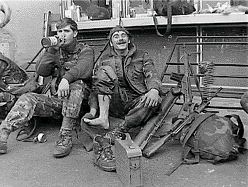 The unlucky ones are just 25 miles south of here in camps or out in the wilds in the desperately disputed border between Croatia and Bosnia-Hercegovina. And then there are the hundreds of thousands who are cut off in towns and small villages in a great swathe of hundreds of mountainous miles all the way from Bihac in the north-west to Kosovo in the south-east, people whom the aid agencies have not yet reached.
The unlucky ones are just 25 miles south of here in camps or out in the wilds in the desperately disputed border between Croatia and Bosnia-Hercegovina. And then there are the hundreds of thousands who are cut off in towns and small villages in a great swathe of hundreds of mountainous miles all the way from Bihac in the north-west to Kosovo in the south-east, people whom the aid agencies have not yet reached.
At the moment these Muslims – most of whom were Slavs who converted to Islam during centuries of Turkish domination and have never come anywhere near to being Islamic fundamentalists – are too shell-shocked, literally, to have considered the merits of a Jihad or any sort of terrorist up-rising in the West. And yet their future looks very, very bleak.
A few months ago the Bosnian Muslims, led by their first democratically elected president in Sarajevo, Alija Izetbekovic, could count on the support of their Hercegovinan Croat neighbours, themselves under the command of Mate Boban. The Muslims and Croats were united by their mutual anger at the military aggression of Radovan Karadzic's Bosnian Serb units, backed by the colossal might of the Serbian state army.
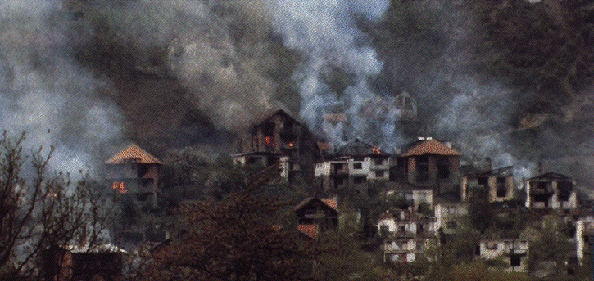
And they could count on the independent republic of Croatia, itself heavily occupied by Serbs, to assist them.
But today Croatia is war-weary and bankrupt. It has lost its big earners – tourism, arms manufacturing and ship-building. Only the deutschmarks of migrant labour in Germany feeds the coffers. And Croatia believes it is swamped by Muslim refugees – though Europe in fact picks up the tab for much of this.
Croatia and Serbia are looking for a peace deal – or, to put it another way, Croatia's President Tudjman and Serbia's President Milosevic want to reach a territorial and political deal which ensures that neither of them is seen to have sold out.
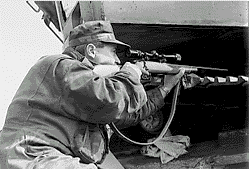 This they could achieve if Milosevic can show that he gained Serbian enclaves in East Slavonia, Northern Bosnia and Krajina while holding onto territory in the south-west through the good offices of his puppet regime in Montenegro – and maybe, just maybe, some access to the Mediterranean as well. President Tudjman would have to content himself with having secured the Dalmatian coast through the acquisition, by proxy, of a large chunk of Hercegovina.
This they could achieve if Milosevic can show that he gained Serbian enclaves in East Slavonia, Northern Bosnia and Krajina while holding onto territory in the south-west through the good offices of his puppet regime in Montenegro – and maybe, just maybe, some access to the Mediterranean as well. President Tudjman would have to content himself with having secured the Dalmatian coast through the acquisition, by proxy, of a large chunk of Hercegovina.
What is not very evident in their calculations is how they think the Muslims will fare out of all this. Now that both the Serbs and the Croats see the Muslims as a stumbling block to their deal and to their hopes for territorial gain, the only allies the Muslims can count on are, paradoxically, the Croatian neo-facist HOS paramilitaries under the leadership of Dobroslav Paraga. But, surprise, surprise, Mr Paraga, who would love to drive the Serbs out of Bosnia-Hercegovina altogether, thus incidentally giving the Muslims some hope, has been charged with serious crimes in Zagreb and his dogs-of-war put on a tight leash.
 Not surprising therefore that the Muslims see themselves deserted and alone – betrayed by EC Monitors and UN troops who duly observed the ethnic cleansing and the atrocities but did not help. Not surprising that they see the Geneva talks as the West presiding over a Tudjman-Milosevic deal which leaves them literally out in the cold. Not surprising that they feel let down by the Croats who once fought with them and now sporadically fight against them.
Not surprising therefore that the Muslims see themselves deserted and alone – betrayed by EC Monitors and UN troops who duly observed the ethnic cleansing and the atrocities but did not help. Not surprising that they see the Geneva talks as the West presiding over a Tudjman-Milosevic deal which leaves them literally out in the cold. Not surprising that they feel let down by the Croats who once fought with them and now sporadically fight against them.
Nor will it be wholly surprising if, one day, sooner or later, the Muslims of Bosnia look to the Muslims of North Africa, the Middle East, the Asian sub-continent and the Far East for salvation. As I speak the Imam of Zagreb, Mustapha Ceric, is seeking support in Malaysia while Sudan and Iran are promising help. And those lorry-loads of arms, to be set aside for a rainy day, may well be rumbling beneath my balcony as I speak.
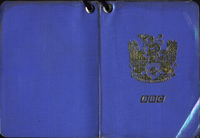
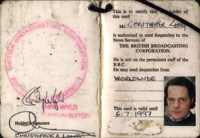 Within weeks, on my next visit to beleaguered Sarajevo in November 1992, the predominantly Muslim Bosnian government forces were being financed, trained, armed and equipped by sympathisers abroad and by friendly nations such as Iran, Sudan and Malaysia. Bosnian Muslims in Zagreb and around the world had mobilised a secret and large-scale operation to equip and prepare for major offensives the following year, 1993.
Within weeks, on my next visit to beleaguered Sarajevo in November 1992, the predominantly Muslim Bosnian government forces were being financed, trained, armed and equipped by sympathisers abroad and by friendly nations such as Iran, Sudan and Malaysia. Bosnian Muslims in Zagreb and around the world had mobilised a secret and large-scale operation to equip and prepare for major offensives the following year, 1993.
Western intelligence gatherers soon identified this development which paradoxically had the effect of galvanising greater European support for Sarajevo's cause – European leaders and the USA being unwilling to see the Bosnian government army become a client of militant Islamic influence outside Europe.
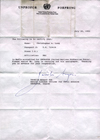
 Consequently a shift in thinking permitted a blind eye to be turned to much Bosnian government sanctions-busting and eventually led to the clandestine arming and equipping of its forces by some Western governments – notably the USA.
Consequently a shift in thinking permitted a blind eye to be turned to much Bosnian government sanctions-busting and eventually led to the clandestine arming and equipping of its forces by some Western governments – notably the USA.
Between October 1992 and the summer of 1993 the Bosnian government army had developed from virtually nothing into a formidable infantry force (though with no air power and virtually no tanks or heavy artillery). By the summer of 1995 it was able to halt Croatia in its tracks and turn the tide against Serb incursions.
© (1992) Christopher Long. Copyright, Syndication & All Rights Reserved Worldwide.
The text and graphical content of this and linked documents are the copyright of their author and or creator and site designer, Christopher Long, unless otherwise stated. No publication, reproduction or exploitation of this material may be made in any form prior to clear written agreement of terms with the author or his agents.
















